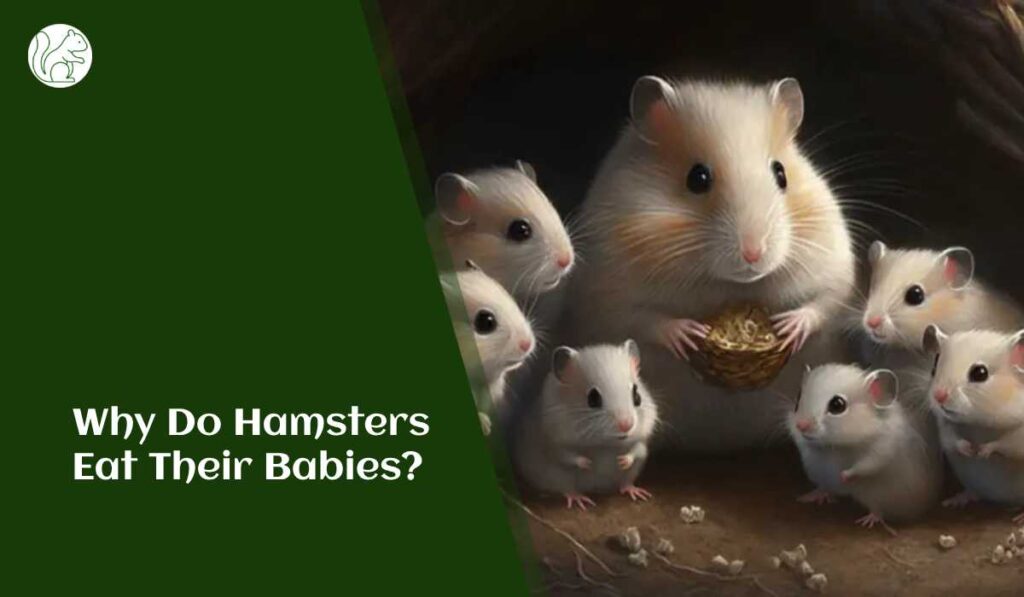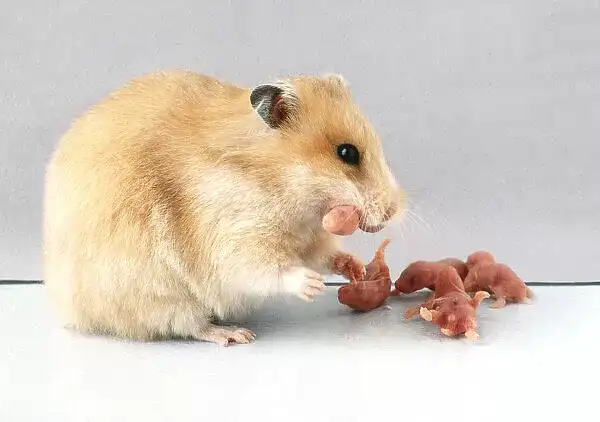Hamsters, those adorable and popular small pets, are known for their gentle nature and nurturing instincts. However, there is a puzzling behavior that some hamsters exhibit, leaving pet owners perplexed and concerned: the act of eating their own offspring. In this article, we delve into the reasons behind this behavior, aiming to shed light on this intriguing phenomenon and provide insights for hamster owners.

Why Do Hamsters Engage in Cannibalism
Delving into the mysterious behavior of hamsters consuming their own offspring, we uncover the factors that contribute to this intriguing and sometimes distressing phenomenon.
Natural Instincts and Evolutionary Factors:
Hamsters, like many other animals, possess natural instincts that have evolved over time. These instincts play a significant role in their survival and reproductive strategies. By understanding the natural instincts of hamsters, such as their drive to find shelter and protect their resources, we can gain insights into their parenting behavior.
Environmental and Physiological Triggers:
Various environmental and physiological factors can contribute to cannibalistic behavior in hamsters. Stress, for instance, can disrupt their natural parenting instincts and trigger abnormal behaviors. Hormonal changes, particularly during and after pregnancy, can also influence a hamster’s behavior towards its offspring.
Nesting Environment and Stress Reduction:
Creating a suitable nesting environment is crucial for hamsters to feel secure and exhibit normal parenting behaviors. Providing them with ample bedding materials, nesting boxes, and privacy can help reduce stress and minimize the likelihood of cannibalism. Techniques such as minimizing disturbances and ensuring a consistent environment can also contribute to stress reduction.
Maternal and Paternal Care:
While maternal care is more common among hamsters, some species also exhibit paternal care. Understanding the roles of both parents in nurturing their offspring can provide valuable insights into the prevention of cannibalistic behavior. Hormonal changes, bonding processes, and social dynamics within the hamster family play important roles in successful parenting.
Resource Scarcity and Overpopulation:
Resource scarcity, such as limited food or space, can trigger cannibalistic behavior in hamsters. In the wild, hamsters may resort to eating their young when resources are scarce to conserve energy and ensure the survival of the remaining offspring. Overpopulation can also lead to increased competition for resources, intensifying the occurrence of cannibalism.

Intervention and Preventive Measures:
To minimize the occurrence of cannibalism, it is important for hamster owners to provide a conducive environment for their pets. This includes maintaining a suitable nesting area, ensuring a balanced diet, and reducing stress through proper handling and socialization. Consulting with a veterinarian and seeking advice from experienced hamster breeders can also provide valuable guidance.
Conclusion:
Understanding why hamsters eat their babies requires a multifaceted approach that considers natural instincts, environmental factors, and the overall well-being of these adorable pets. By providing a nurturing environment, managing stress levels, and implementing preventive measures, hamster owners can promote healthy parenting behaviors and reduce the risk of cannibalistic behavior.
Remember, each hamster is unique, and not all hamsters exhibit this behavior. By being attentive, proactive, and knowledgeable, we can provide the best care for our beloved furry friends and foster a harmonious relationship between hamsters and their offspring.
